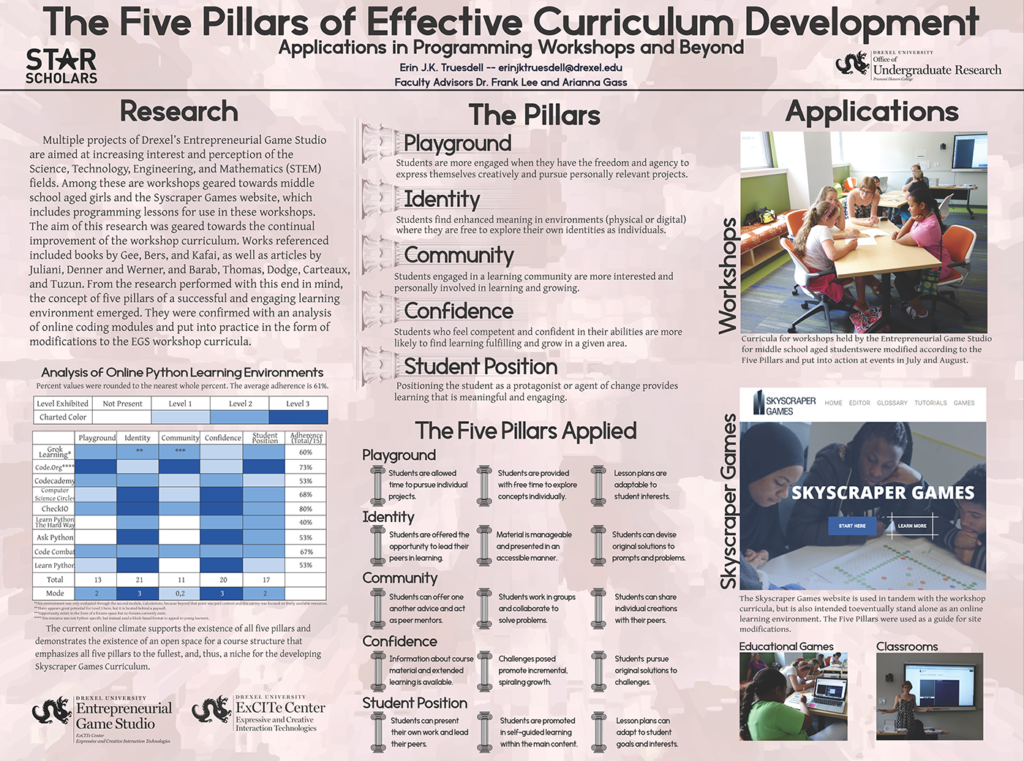Engaging Digital Learning Environments

Completed June-August 2016 as part of Drexel University’s STAR Scholars program, in which I had the opportunity to spend ten weeks working at Drexel’s Entrepreneurial Game Studiodoing research in my field. This was an incredible opportunity to undertake as a rising sophomore, and I was fortunate enough to be able to take my poster to the 2017 National Conference on Undergraduate Research as well as Drexel’s 2017 Week of Undergraduate Excellence.
Drexel University’s Entrepreneurial Game Studio (EGS) offers workshops and online lessons to students (especially girls) between the ages of 11 and 15 in an effort to address the gender gap and increase interest in Science, Technology, Engineering, Art & Design, and Mathematics (STEAM) fields. A review of a body of research focused on curriculum development and online Python learning environments was performed to improve the existing curriculum and provide a credible base for the changes made. Sources included studies on gaming and computer science education, books about learning theories and gaming, and articles on developmental psychology. An analysis of the reviewed literature yielded Five Pillars of Curriculum Development: Playground, Identity, Community, Confidence, and Student Position.
Nine external and widely available programming websites were evaluated using these as criteria. The review found that the five pillars are applicable to teaching programming. With this information, I reviewed and extended the lesson plans for the EGS Skyscraper Games workshops. These added activities took the form of discussions of the relevance of learning to code, unplugged problem-solving exercises, and opportunities to share projects and ideas. Additionally, guidelines for implementing the Five Pillars were developed for broader applications of this framework in digital learning environments.